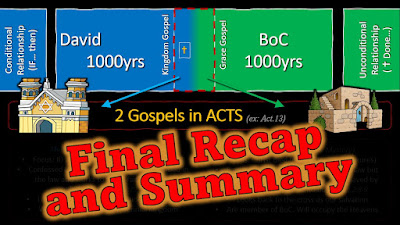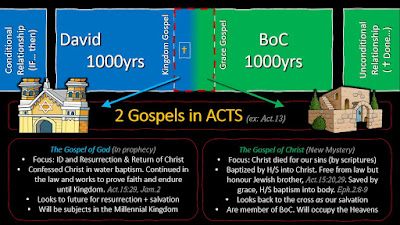Correcting a common misunderstanding of water baptism
I'd just like to clarify that when I post these sorts of posts, it's because I believe they can be a good source of instruction and correction. Paul tells us that the Word of God, rightly divided (2Tim.2:15), is given by inspiration of God, and is profitable for doctrine, for reproof, for correction, and for instruction in righteousness: that the man of God may be perfect, throughly furnished unto all good works, 2Tim.3:16-17. So, in this regard, when someone posts something that does not agree with a rightly divided context, I take the opportunity presented and use it for teaching purposes. God bless.
Social Media Response:
Nobody has ever explained the difference between old Covenant and New Covenant teaching. The things that were required under the old Covenant include tithing and obeying the law and making sacrifices for your sins. Under the New Covenant all is required to be saved is to believe in the Lord Jesus Christ. Ephesians 2: 8-9, Titus 3:5 - once you have been redeemed and believe in Jesus as your Lord and Savior then you need to walk in the spirit, in order to understand what that means read Galatians 5:19 - 25. Baptism in water is included because of the Great commission when Jesus commanded his disciples to go into all the world and proclaim the good news of the Gospel, baptizing in the name of the Father, the Son and the Holy Spirit. If you have not been baptized, you are still saved and still a believer but, because Jesus commanded his disciples to baptize, then we need to be also to follow the Lord's example, BUT JUST REMEMBER THAT BAPTISM DOES NOT SAVE YOU. Read also: Romans 10:9–10.
My Reply:
I am in agreement until the word "baptism". Let me clarify that baptism is also part of the Jewish covenant program which (like tithing) is not to be carried over into our current grace program. Baptism originated under the Mosaic instructions concerning the washings of the Levitical priesthood. Since all of Israel is a kingdom of priests (Ex.19:6;1 Pet.2:9), the purpose of baptism (priestly washing) is applicable to all Jews under their covenant program if they are to enter the Kingdom.
As for the grace program of the Body of Christ, we have only one baptism, and it has nothing to do with water. It is the Holy Spirit who baptises us into the Body of Christ in the instant that a person believes the grace gospel and is saved, Eph.4:5.
It is important to rightly divide the Word of truth and not mix, blend together, the covenant program of the Kingdom with the Grace program of the Body of Christ. Mixing together these programs produces a confusing and contradictory doctrine.





















